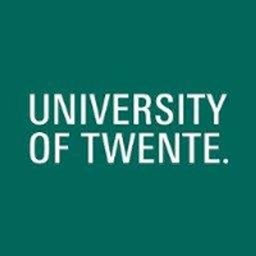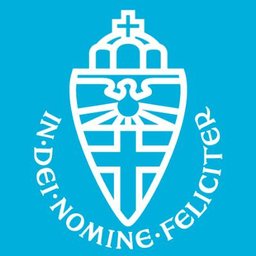Job Opportunities in Netherlands

September 18, 2024
Wageningen University & Research
Wageningen
OTHER
Postdoctoral Researcher in Plant-Fungal Interactions (ERC-Advanced Project DIGDEEP)
We are seeking a highly motivated postdoctoral researcher to join our team as part of the prestigious ERC-Advanced Project ‘DIGDEEP’ that aims to unravel diversity-disease relationships in plants. Within this project, you will play a pivotal role leading the design and execution of sophisticated, state-of- the-art experiments aimed at elucidating the underlying mechanisms that drive diversity-disease dynamics within grassland ecosystems. Your research will delve deep into the complex interactions between plant root systems and soil-borne fungi, encompassing both pathogenic and symbiotic relationships.
Your duties and responsibilities:As a postdoc in the DIGDEEP project, you will:
You will be an integral part of the ‘root ecology’ team led by Prof. Dr. Liesje Mommer. In this team, which is embedded in the Forest Ecology and Forest Management group, senior and junior researchers and students collaborate in projects on plant-fungal interactions and root trait ecology. Your work will be supported by the Molecular Ecology team of Prof. Raaijmakers at the Netherlands Institute of Ecology (NIOO), which is also located on the Wageningen Campus. The ultimate goal of the DIGDEEP project is to deliver fundamental knowledge on diversity-disease relationships in plants to facilitate diversification of cropping systems. Such innovation contributes to developing sustainable agricultural systems, and to goals related to producing healthier food and restoring biodiversity. Therefore, we will also be collaborating and creating knowledge with stakeholders, such as agronomists and breeders.
You will work here
The root ecology team of Professor Mommer is part of the Forest Ecology and Forest Management (FEM) group that studies forest ecosystems worldwide, and focuses on above- and belowground elements that make up (forest) ecosystems. Yet, this project does not study trees, but grassland species obviously. The FEM group is a vibrant international group, with >10 nationalities among staff and Ph D students and with research projects and collaborations across the globe. The work environment is inclusive, welcoming and informal, which promotes exchange of knowledge and experiences among researchers of all career stages.
Wageningen University & Research encourages internal advancement opportunities and mobility with an internal recruitment policy. There are plenty of options for personal initiative in a learning environment, and we provide excellent training opportunities. We are offering a unique position in an international environment with a pleasant and open working atmosphere.
You are going to work at the greenest and most innovative campus in Holland, and at a university
that has been chosen as the “Best University” in the Netherlands for the 19th consecutive time.
Coming from abroad
Wageningen University & Research is the university and research centre for life sciences. The themes we deal with are relevant to everyone around the world and Wageningen, therefore, has a large international community and a lot to offer to international employees.
Our team of advisors on Dutch immigration procedures will help you with the visa application procedures for yourself and, if applicable, for your family.
Feeling welcome also has everything to do with being well informed. Wageningen University & Research's International Community page contains practical information about what we can do to support international employees and students coming to Wageningen. Furthermore, we can assist you with any additional advice and information about for example helping your partner to find a job, housing, or schooling. Finally, certain categories of international staff may be eligible for a tax exemption on a part of their salary during the first five years in the Netherlands. The mission of Wageningen University & Research is “To explore the potential of nature to improve the quality of life”. Under the banner Wageningen University & Research, Wageningen University and the specialised research institutes of the Wageningen Research Foundation have joined forces in contributing to finding solutions to important questions in the domain of healthy food and living environment. With its roughly 30 branches, 7,600 employees (6,700 fte) and 13,100 students and over 150,000 participants to WUR’s Life Long Learning, Wageningen University & Research is one of the leading organisations in its domain. The unique Wageningen approach lies in its integrated approach to issues and the collaboration between different disciplines.
Read the 5 reasons why your future colleagues enjoy working at WUR and watch the video below to get an idea of our green campus!
We will recruit for the vacancy ourselves, so no employment agencies please. However, sharing in your network is appreciated.
This vacancy will be listed up to and including 14 October 2024. We hope to schedule the first job interviews on 5 November 2024.The intended starting date of the postdoc will be in January, 2025.
Procedure
As part of our selection process, an assessment may be incorporated within the procedure
Equal opportunities Wageningen University & Research (WUR) employs a large number of people with very different backgrounds and qualities, who inspire and motivate each other. We want every talent to feel at home in our organisation and be offered the same career opportunities. We therefore especially welcome applications from people who are underrepresented at WUR. A good example of how WUR deals with inclusiveness can be read on the page working at WUR with a functional impairment.
Your duties and responsibilities:As a postdoc in the DIGDEEP project, you will:
- lead research on plant-fungal interactions, focusing on the fungal side of the project;
- design and execute controlled bioassays to assess susceptibility of a wide range of plant species to a set of soil-borne pathogens;
- conduct mesocosm studies to separate the effects of plant species richness and host quality for disease risk;
- apply molecular techniques to quantify pathogen abundance in large-scale biodiversity experiments;
- co-supervise Ph D students and a technician, specifically guiding molecular aspects of their research.
You will be an integral part of the ‘root ecology’ team led by Prof. Dr. Liesje Mommer. In this team, which is embedded in the Forest Ecology and Forest Management group, senior and junior researchers and students collaborate in projects on plant-fungal interactions and root trait ecology. Your work will be supported by the Molecular Ecology team of Prof. Raaijmakers at the Netherlands Institute of Ecology (NIOO), which is also located on the Wageningen Campus. The ultimate goal of the DIGDEEP project is to deliver fundamental knowledge on diversity-disease relationships in plants to facilitate diversification of cropping systems. Such innovation contributes to developing sustainable agricultural systems, and to goals related to producing healthier food and restoring biodiversity. Therefore, we will also be collaborating and creating knowledge with stakeholders, such as agronomists and breeders.
You will work here
The root ecology team of Professor Mommer is part of the Forest Ecology and Forest Management (FEM) group that studies forest ecosystems worldwide, and focuses on above- and belowground elements that make up (forest) ecosystems. Yet, this project does not study trees, but grassland species obviously. The FEM group is a vibrant international group, with >10 nationalities among staff and Ph D students and with research projects and collaborations across the globe. The work environment is inclusive, welcoming and informal, which promotes exchange of knowledge and experiences among researchers of all career stages.
Wageningen University & Research offers excellent terms of employment. A few highlights from our Collective Labour Agreement include:
In addition to these first-rate employee benefits, you will of course receive a good salary. Depending on your experience, we offer a competitive gross salary of between € 3.345 and € 5.278 for a full-time working week of 38 hours, in accordance with the Collective Labour Agreements for Dutch Universities (CAO-NU) (scale 10).
- sabbatical leave, study leave, and partially paid parental leave;
- working hours that can be discussed and arranged so that they allow for the best possible work-life balance;
- the option to accrue additional compensation / holiday hours by working more, per week;
- there is a strong focus on vitality and you can make use of the sports facilities available on campus for a small fee;
- a fixed December bonus of 8.3%;
- excellent pension scheme.
Wageningen University & Research encourages internal advancement opportunities and mobility with an internal recruitment policy. There are plenty of options for personal initiative in a learning environment, and we provide excellent training opportunities. We are offering a unique position in an international environment with a pleasant and open working atmosphere.
You are going to work at the greenest and most innovative campus in Holland, and at a university
that has been chosen as the “Best University” in the Netherlands for the 19th consecutive time.
Coming from abroad
Wageningen University & Research is the university and research centre for life sciences. The themes we deal with are relevant to everyone around the world and Wageningen, therefore, has a large international community and a lot to offer to international employees.
Our team of advisors on Dutch immigration procedures will help you with the visa application procedures for yourself and, if applicable, for your family.
Feeling welcome also has everything to do with being well informed. Wageningen University & Research's International Community page contains practical information about what we can do to support international employees and students coming to Wageningen. Furthermore, we can assist you with any additional advice and information about for example helping your partner to find a job, housing, or schooling. Finally, certain categories of international staff may be eligible for a tax exemption on a part of their salary during the first five years in the Netherlands. The mission of Wageningen University & Research is “To explore the potential of nature to improve the quality of life”. Under the banner Wageningen University & Research, Wageningen University and the specialised research institutes of the Wageningen Research Foundation have joined forces in contributing to finding solutions to important questions in the domain of healthy food and living environment. With its roughly 30 branches, 7,600 employees (6,700 fte) and 13,100 students and over 150,000 participants to WUR’s Life Long Learning, Wageningen University & Research is one of the leading organisations in its domain. The unique Wageningen approach lies in its integrated approach to issues and the collaboration between different disciplines.
Read the 5 reasons why your future colleagues enjoy working at WUR and watch the video below to get an idea of our green campus!
We will recruit for the vacancy ourselves, so no employment agencies please. However, sharing in your network is appreciated.
We are looking for a candidate with a passion for and expertise in fungal biology within ecological contexts. The ideal candidate will have:
- Ph D in Biology, Ecology, or a related field.
- Specialized Experience: Proven experience in phytopathology, mycology, or plant disease epidemiology, with specific expertise in building and maintaining fungal collections, conducting bioassays, and molecular quantification of fungal pathogen abundance.
- Leadership & Independence: Demonstrated ability to take initiative, lead projects, and work independently in the above areas.
- Experimental Design & Statistical experience: Strong skills in experimental design and statistical analysis within ecological contexts, and with a focus on advancing concepts in disease ecology.
- Communication Skills: Fluency in English, both written and spoken, with a proven ability to write effectively in academic settings.
- Team Collaboration: A creative, proactive team player with strong problem-solving skills and a positive attitude.
For more information about this position, please contact prof. dr Liesje Mommer, liesje.mommer@wur.nl;
For more information about the procedure, please contact Noorien Abbas, corporate recruiter
noorien.abbas@wur.nl.
Do you want to apply?
You can apply directly using the apply button on the vacancy page on our website which will allow us to process your personal information with your approval.
For more information about the procedure, please contact Noorien Abbas, corporate recruiter
noorien.abbas@wur.nl.
Do you want to apply?
You can apply directly using the apply button on the vacancy page on our website which will allow us to process your personal information with your approval.
This vacancy will be listed up to and including 14 October 2024. We hope to schedule the first job interviews on 5 November 2024.The intended starting date of the postdoc will be in January, 2025.
Procedure
As part of our selection process, an assessment may be incorporated within the procedure
Equal opportunities Wageningen University & Research (WUR) employs a large number of people with very different backgrounds and qualities, who inspire and motivate each other. We want every talent to feel at home in our organisation and be offered the same career opportunities. We therefore especially welcome applications from people who are underrepresented at WUR. A good example of how WUR deals with inclusiveness can be read on the page working at WUR with a functional impairment.
Latest Job Opportunities
September 25, 2024
Tamarschool
Leerkracht voor de startklas (groep 1 en 2)
Den Haag
OTHER
View DetailsSeptember 25, 2024
Docenter
FREELANCE LEERKRACHT GEZOCHT – per 1 november
Den Haag
OTHER
View DetailsSeptember 25, 2024
Gro-up kinderopvang
Pedagogisch medewerker op het Meeuwennest
Zoetermeer
OTHER
View DetailsSeptember 25, 2024
PCBO
Ervaren leerkrachtondersteuner en/of onderwijsassistent, 24-40 uur (De Wissel)
Rotterdam
OTHER
View DetailsSeptember 25, 2024
PCBO
Pedagogisch medewerker Het Kleine Klavertje , 16 uur (De Klaver Carnisse)
Rotterdam
OTHER
View DetailsSimilar Jobs

September 17, 2024
Universiteit Twente
Postdoctoral researcher for “Grief is a family affair”
Enschede
OTHER
View Details
September 20, 2024
Universiteit van Amsterdam
Postdoctoral Position RoboChem
Amsterdam
OTHER
View Details
September 20, 2024
Universiteit van Amsterdam
Postdoctoral Position on Fast Radio Burst in the AstroFlash Group
Amsterdam
OTHER
View Details
September 24, 2024
Universiteit van Amsterdam
Postdoctoral Position in Nuclear Astrophysics with Gravitational Wave and Multi-messenger Datasets
Amsterdam
OTHER
View Details
September 20, 2024
Universiteit van Amsterdam
Postdoctoral Researcher in Microbiome Analysis of the Soil-plant-gut-health Axis
Amsterdam
View Details
September 24, 2024
Radboudumc
Postdoctoral researcher for personalized biomarker analysis in multiple myeloma
Nijmegen
View DetailsNew Jobs from This Company

September 20, 2024
Wageningen University & Research
Postdoc Datascience and Machinelearning
Wageningen
View Details
September 20, 2024
Wageningen University & Research
Assistant Professor or Lecturer in the Hydrology and Environmental Hydraulics Group
Wageningen
OTHER
View Details
September 20, 2024
Wageningen University & Research
PhD Unraveling Plant-Fungal Interactions Belowground (ERC-Advanced Project DIGDEEP)
Wageningen
OTHER
View Details

September 18, 2024
Wageningen University & Research
Postdoctoral Researcher in Plant-Fungal Interactions (ERC-Advanced Project DIGDEEP)
Wageningen
OTHER
View Details